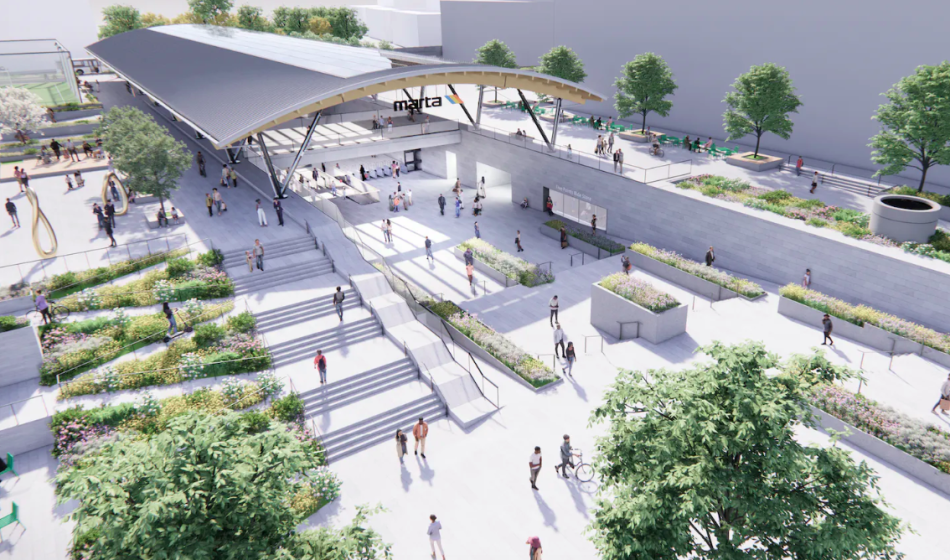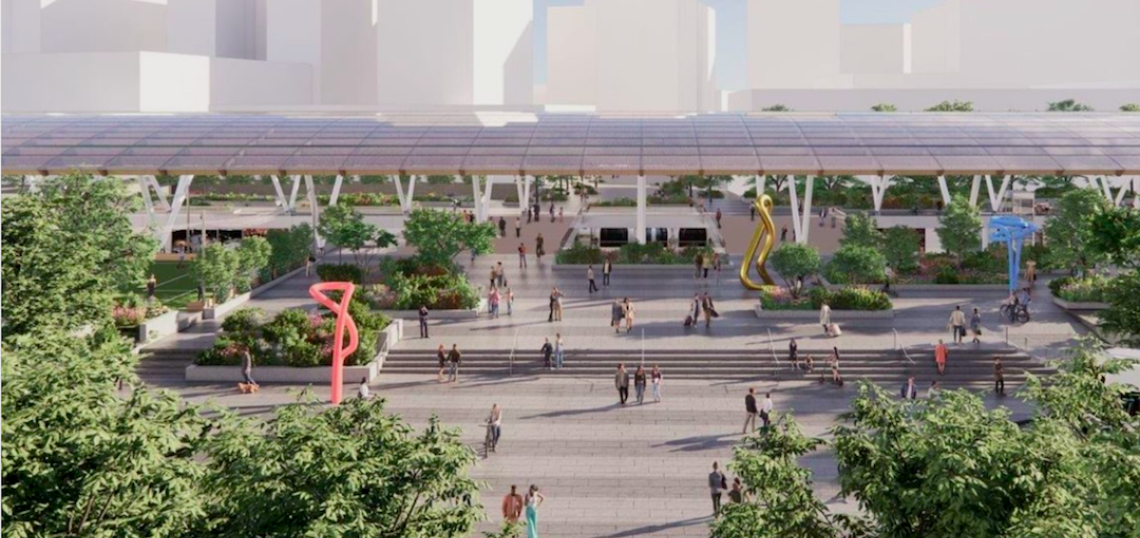DOWNTOWN—In a month that’s already seen Atlanta’s aging infrastructure make national headlines, MARTA’s timeline for updating the outdated Five Points station—the agency’s largest and busiest transit hub—appears to be in limbo. Axios Atlanta first reported Mayor Andre Dickens has submitted a letter to MARTA general manager and CEO Collie Greenwood asking that MARTA’s planned $230 million remake of the downtown hub be halted until after an ongoing audit of the agency is finished in late July.
MARTA announced in May that Five Points station would be closed to street-level access and that its bus connections would be rerouted to other downtown stations beginning in July. Those changes were expected to last for 18 months, or roughly until the end of 2025.
Dickens’ letter states he’s read preliminary audit findings for the 2016 sales tax More MARTA spending—the primary funding mechanism for the Five Points project—and that he’s seeking additional details. Early findings suggest MARTA could have to repay more than $60 million to the More MARTA program, and Dickens noted the city has “identified other priorities that need to be considered before we move forward,” which could be a reference to new BeltLine rail stops along MARTA rail lines, as Axios reports.
 A refined preview depicting how the opened-up transit hub could look and function. Courtesy of MARTA
A refined preview depicting how the opened-up transit hub could look and function. Courtesy of MARTA
MARTA’s goal is to remake the bunker-like, 1970s downtown transit hub into a vibrant city center, with better transit connectivity, improved customer amenities, and increased safety, with perks including communal spaces, public art, and sections for urban agriculture. The station sees roughly 12,000 daily entries and exits, and about 4,500 transfers between buses, or from buses to rail, each day, per data provided by MARTA.
[UPDATE: Monday, June 10, 6:59 p.m. — MARTA has officially responded to Dickens' letter.]
….
SOUTHSIDE—Good news for southside multi-use trail enthusiasts: Atlanta Regional Commission and four communities near Atlanta’s airport have bagged another $14.9 million in federal funding to help create an ambitious, 31-mile system of trails now officially dubbed the Flint River Gateway Trails Network.
ARC officials and the four communities—Clayton County and the cities of Hapeville, College Park, and East Point—collectively applied for and received funding through the U.S. Department of Transportation’s Reconnecting Communities and Neighborhoods program. The same initiative scored $50 million in U.S. DOT funding in March, so the current total is nearly $65 million.
According to ARC officials, who are leading planning and administration work on the Flint River trails plans, the money will be used to map out and engineer more than half of the network and to build portions of the trail (totaling 3.2 miles) that will eventually link the BeltLine down to the Tri-Cities and into Clayton County. Each jurisdiction will be responsible for overseeing construction of its own trail segment.
“In essence, we took a few of the already planned trails in the area (like one the City of Atlanta is building from the BeltLine in southwest ATL south toward East Point) and realized that we could knit together a contiguous 31-mile trails network,” ARC spokesperson Paul Donsky wrote in an email to Urbanize Atlanta.
 Plans compiled in 2021 for a trail section near a 23-acre industrial property called the Tift site. Willingham Corridor Improvement Study, via ARC
Plans compiled in 2021 for a trail section near a 23-acre industrial property called the Tift site. Willingham Corridor Improvement Study, via ARC
…
ALPHARETTA—In northern suburbs news, the Alpharetta City Council has unanimously approved a project that’s expected to be the densest to date in the North Fulton County city’s central business district, with one councilmember hailing the venture as setting a new standard. The four-story project by Atlanta-based Place Maker Design is set to take shape on a 1-acre parcel at 55 Canton St., roughly two blocks northwest of Alpharetta’s Town Green at City Center, as Appen Media reports.
Plans call for 36 for-sale condos and 7,000 square feet of retail space at street level, with those commercial spaces restricted in Alpharetta to uses such as clothing boutiques, coffee shops, bakeries, grocery stores, and florists.
The project will include an underground parking structure, but that will not meet Alpharetta’s minimum parking requirements, so Place Maker Design is being required to pay a $94,500 parking in-lieu fee. According to the news outlet, city officials are permitted to use that fee to develop new public parking.
...
Follow us on social media:
Twitter / Facebook/and now: Instagram
• Downtown news, discussion (Urbanize Atlanta)






